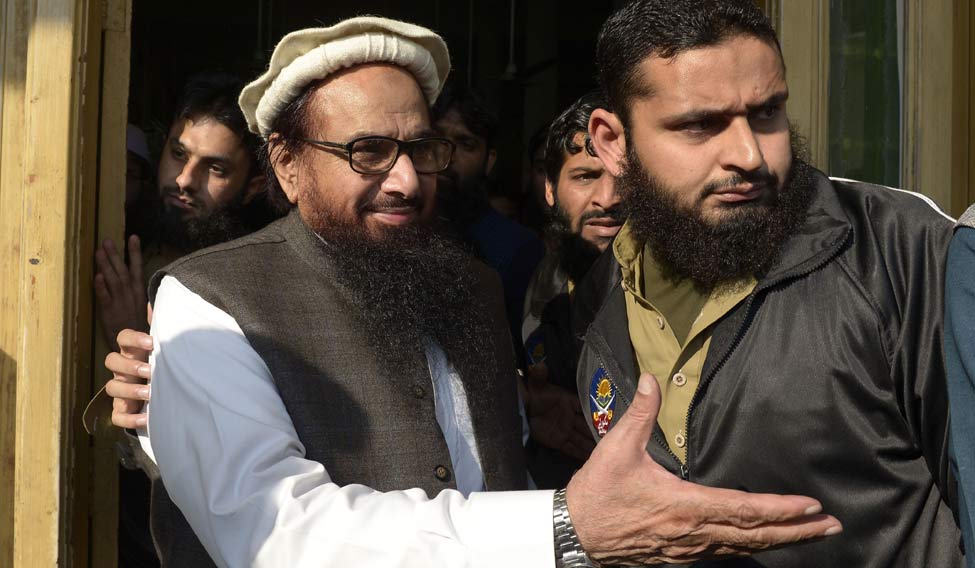Lashkar-e-Taiba (LeT) founder Hafiz Saeed, accused by India and the US of masterminding the 2008 Mumbai massacre, was on Friday freed after 10 months of house arrest here and vowed to continue the "jihad" for Jammu and Kashmir's "independence".
In an address to his supporters massed outside his Johar Town residence, the Jamaat-ud-Dawa (JuD) leader thanked the Lahore High Court for refusing to buy the government's arguments that his release would pose a threat to public safety.
His release, he said, was a victory for Pakistan.
"Just as I am free today, Kashmir will also be free one day," Saeed said. "It is because of Kashmir that India has been after me.
"I pray to Allah to give us strength so that we keep fighting for Kashmir's independence (from India)," he told his supporters who had begun gathering outside his house even before the midnight hour.
Saeed, who carries a $10 million bounty announced by the US for his role in terrorist activities, was released just after Thursday midnight, after a Lahore High Court review board turned down the government's arguments that he was a threat to public safety.
A court on Wednesday ruled out prolonging Saeed's house arrest due to a lack of evidence or justification for it. Saeed was placed under house arrest on January 30 this year and a court regularly renewed his detention.
As his detention order expired on Thursday midnight, authorities withdrew jail staff from his residence.
"Now he is free and can go anywhere," JuD spokesperson Ahmed Nadeem told Efe news. Police left Saeed's house at midnight, he said.
The US and the UN classify JuD as a terrorist group and it is alleged to be a front organization for the terror outfit LeT, whose attack on Mumbai led to the death of 166 Indians and foreigners and almost brought India and Pakistan to war.
Interpol has also issued a red notice for his arrest.
New Delhi also accuses the LeT of carrying out terror attacks in other parts of India, including Jammu and Kashmir, where a separatist campaign backed by Pakistan and raging since 1989 has left thousands dead.
Saeed was put under house arrest after the Mumbai attack but was released about six months later.
India had earlier denounced the Pakistani court's decision to free Saeed, saying it "confirms once again the lack of seriousness on the part of the Pakistani government in bringing to justice the perpetrators of heinous acts of terrorism".
Although seen as a terrorist, Saeed's group is popular for its charitable work in Pakistan.





